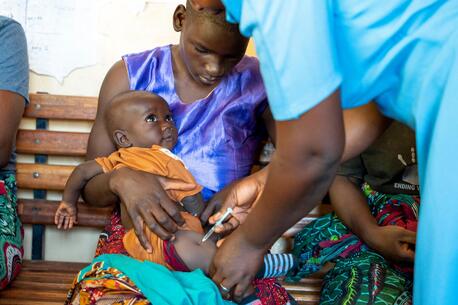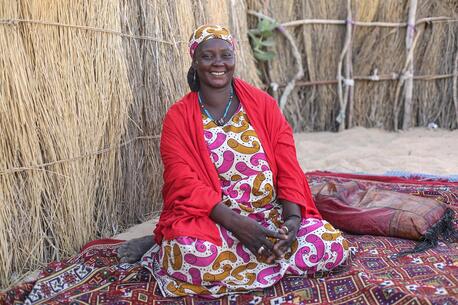Out-of-School Syrian Children Catch Up With Self-Learning Program
Eight long years of fighting have taken a toll on children's education in Syria. Multiple displacements, fighting and lost livelihoods have forced more than 2 million children out of school, putting their future at risk.
The Self-Learning Program, a joint venture by Educate A Child (EAC) — a global program of Education Above All — and UNICEF USA, allows out-of-school children between the ages of 6 and 15 to catch up with their peers by studying at home or in community centers with the help of volunteers or caregivers. In the governate of Aleppo, regular schools serve as learning centers for the program, over weekends and after regular school hours. Children benefitting from the program learn English, Arabic, math and sciences, including physics and chemistry.
Children who have enrolled in the program, like 7-year-old Nour (above), receive school bags, school supplies, textbooks. The program also offers mine risk education sessions to help them learn how to protect themselves against the risk of unexploded ordnance, and recreational and sports activities to help them regain a sense of normalcy and just be kids again.
In Qaramel village, 14 miles north of Aleppo, EAC and UNICEF's Self-Learning Program helps 230 children — including Sana, 6 (above) — from nine neighboring villages. "Most of the children who benefit from the program have lost at least three years of their education," says the learning center coordinator. "We keep encouraging children to go back to school once they feel ready. Our goal is to reintegrate them in formal education."
It's chilly inside the school building, but 7-year-old Ali (above) is happy to be back in a classroom. He's one of the more than 2 million Syrian children whose education has been disrupted by the civil war. "What happens when a Syrian child has never known a peaceful Syria?" asked UNICEF Executive Director Henrietta Fore. "Schools are where boys and girls from various cultures, religions and social and economic backgrounds can gather and spend time together. Learn together. Play together. And build the mutual respect and understanding that builds social cohesion."
Together, EAC and UNICEF have reached 7-year-olds like Heyam (above) and Maryam (below) and more than 119,000 other children through the Self-Learning Program, allowing them to reconnect with their peers and reach their full potential in life.
UNICEF and partners continue to work across Syria and in neighboring countries to help provide children with essential education, health, protection and nutrition services and to help build families' resilience.
"As the war enters its ninth year, UNICEF again reminds parties to the conflict and the global community that it is the country's children who have suffered most and have the most to lose," said Fore. "Each day the conflict continues is another day stolen from their childhood."
Top photo: Brothers Omar, 10 (left), and Ali, 7 attend a joint learning session supported by Educate A Child and UNICEF in Qaramel village in northern rural Aleppo, Syria. All photos © UNICEF/Syria/Khudr Al-Issa


